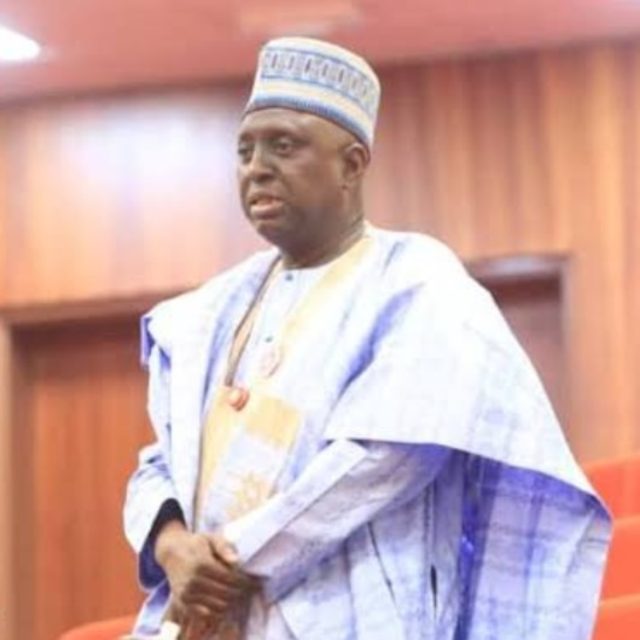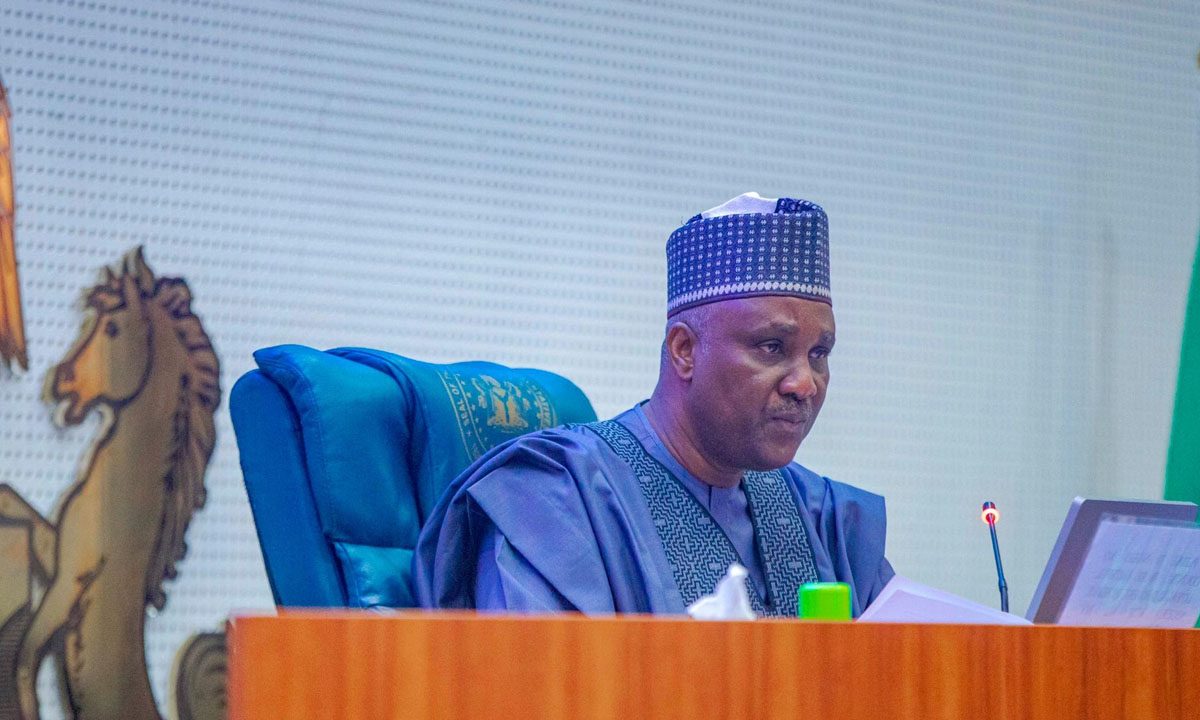Chairman of the Senate Committee on Health, Senator Ibrahim Oloriegbe, (APC, Kwara Central), was among the key actors that saw to the passage and eventual assent of the Mental Health Act.
OrderPaper Nigeria sat with the medical doctor-turned-politician in an interview to gain greater insight into the objectives and major provisions of the Act

READ ALSO: Parliament Meme: Committee Membership in the Senate
President Muhammadu Buhari on January 5, 2023, signed the Mental Health Bill 2021 into law after two failed attempts.
The bill, harmonised by both chambers of the National Assembly in 2021, is the first legislative reform adopted in the field since the country’s independence and will also replace the Lunacy Act of 1958.
According to health experts, mental health includes our emotional, psychological, and social well-being. It affects how we think, feel, and act. It also helps determine how we handle stress and make healthy choices. We sat with Senator Oloriegbe and gained a deeper understanding of the objectives of the initial bill and the safeguards for implementation.

Q: What is the benefit of the Mental Health Act to Nigerians?
What we had in total is a Lunacy Act which was a regional thing and was promulgated first in 1916 or 1918, that is the colonial time, then in 1958, which is still colonial time. that law was brought into the laws of the country but not for the whole country because it was a regional law and it was only applicable within the Lagos Area then. That is why it is not in the reported law book.
In the initial attempt to get this law, we were trying to repeal that Act, but in the final one, there is no repeal of that. Nigeria definitely did not have any law that you call a legal framework for the delivery of mental health.
Now, why is it important? WHO’s (World Health Organisation) definition of health covers three areas. They said health is not the mere absence of disease or ill health, but a complete physical, mental and social well-being.
Mental well-being is (necessary), because you may have a good physical thing. You are able to see, you are able to hear, you are complete, but your mental ability is, in one way or the other challenged. We don’t pay much attention to that. Hitherto also, the fundamental right of people with mental health is not established, and it is not protected by law.
READ ALSO: Productivity Index: Top 10 Senators by Bills Progression | National Assembly Scorecard
CULTURAL ISSUES
The Lunacy Act that I refer to, did not recognise them as human beings because once you have a mental sickness, they said you should be dropped in an asylum. (For) your property, your assets; you don’t have the right to it.
And if we forget about the law, within our social and cultural living, when somebody has mental health, what do they do? They chain the person, they beat the person, in what you call the “homes.” There are some people (elderly), who have dementia, but they term them as witches because the person is talking irrationally. All these are (issues of breaching) fundamental human rights.
They gather some children together, and they will put them and say they are “ogbanjes.” Perhaps they probably have some element of mental sickness. So there is no legal framework, there is no legal protection.
IMPLEMENTATION
First and foremost, it (the Mental Health Act) gives recognition to the need to deliver effective, qualitative, accessible mental health across the country. It establishes a structure through which the services or the policy can be developed, service can be delivered, it can be evaluated, and it can be coordinated.
We started with having a Commission, but we felt that we had too many agencies. What we created is to have a Department for Mental Health in the Federal Ministry of Health and we hope each state will domesticate this law and have a Department of Mental Health. You have a Department of Hospital Services in the Ministry, Nursing Services and so on, so we want a Department for Mental Health which the law has now given.
The Department’s responsibilities include developing policies, mobilising resources, developing the model of services to be delivered, monitoring and assessing those services and sure they are done well.
Also, mental health is not mainly facility treatment, there are other ways of treating it, some of them can be community-based treatment and this is encouraging because people with mental health (just like people with physical health) can be accommodated within the community. (They can be accommodated) to still function, to still live.
Maybe as I am sitting down before you, I have hypertension. I have diabetes but am I not functioning? I am just saying it, and so somebody can have mental health (issues). Such a person can still live in the community and still function; so this law recognises that.
READ ALSO: Top 10 Senators by Bills Volume (Newbies) | National Assembly Scorecard
Now in addition to the Department, tany structure put in place cannot do anything without money, so the law provides for the Mental Health Fund to be able, specifically a ring fence form that will address the issue of mental health.
The law as well established what we call the Mental Health Assessment Committee, which is part of a mechanism to ensure that people with mental health are given a fair hearing and are treated as human beings with fundamental rights.
For example, especially under the law, if somebody commits a crime, the person may commit a crime because he has mental health disability, this is happening in America, especially with people that use guns and just kill people. Here also, it does happen but without that assessment, it will be unknown and the person will just be thrown into jail; whereas that crime was committed because of mental derailment.
Concluding part to be published in subsequent editions.



